Summer is just around the corner and many thousands of conservatory owners will be retreating to their respective extensions to embrace the warm weather.
Do you feel a tinge of jealousy at the thought of those people having the luxury of an extra room during our hottest season?
If the answer is “yes” we suggest you follow in their footsteps and acquire a conservatory of your own and now is the time to do it!
Conservatories of all kinds at Clearview
Our conservatory range is consistently growing, so we don’t envy you trying to choose a favourite. You may find it helpful to have some understanding of the various characteristics of the different home extensions we supply and fit.
Edwardian Conservatory
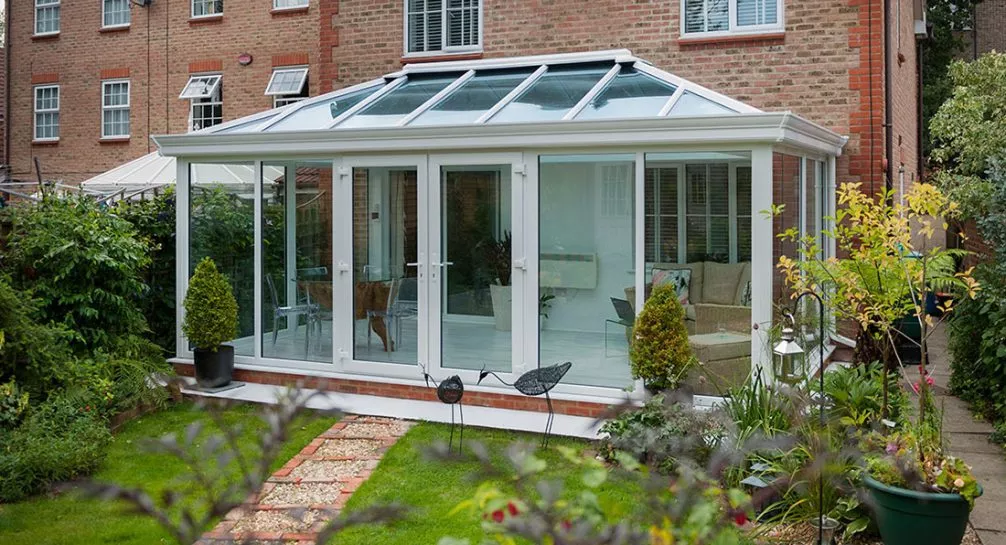
Edwardian conservatories traditionally have a square or rectangular shape and a high pitched roofing system that gives the inside of the structure an immense amount of height. Most householders utilise an Edwardian conservatory as an additional living room or dining area as the flat walls included in the design make it very easy for any sofas and shelves to be inserted into the space.
Victorian Conservatory
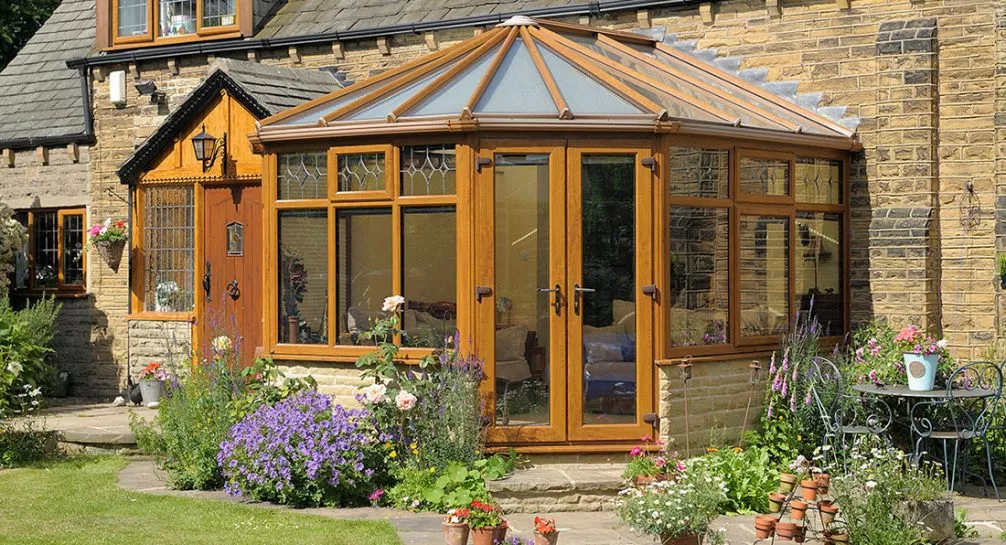
The very first Victorian conservatories were built over 150 years ago, yet they’re still amazingly popular, testament to the timelessness of the design. They particularly complement period properties and are shaped either hexagonally or in octagonal form. The rounded shape of the frontage means that you get extraordinary views of the outdoors.
Lean-To Conservatory
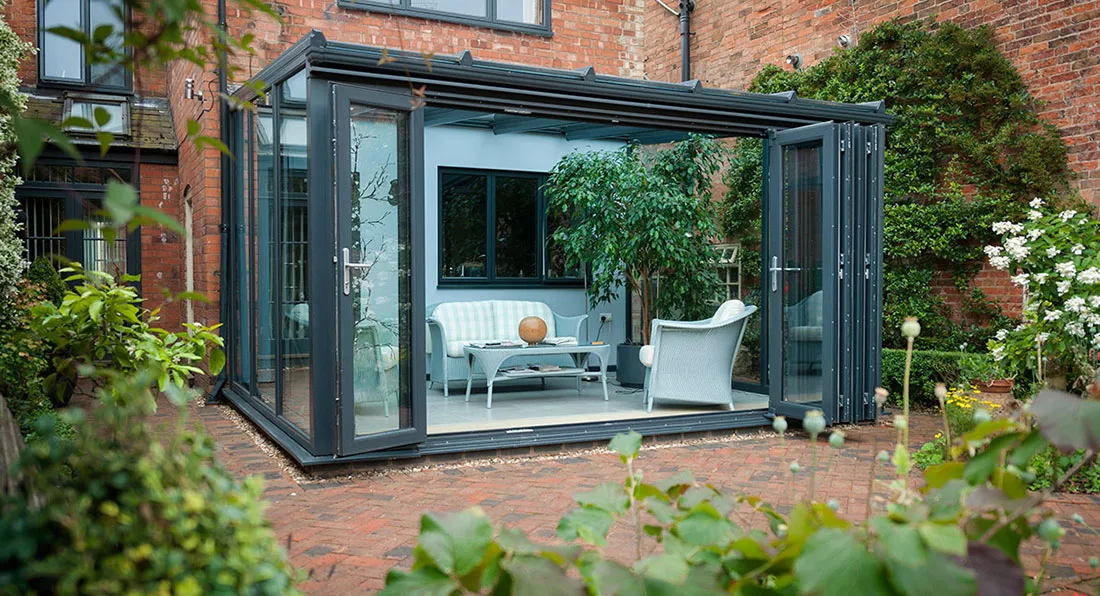
The slenderness of the Lean-To conservatory makes it the ideal home extension for those living in bungalows and homes with a low-pitched roof. Some conservatory companies like to call them garden rooms or sun rooms. Whatever you want to call it, the Lean-To conservatory is deceivingly spacious despite its compact shape.
Gable Conservatory
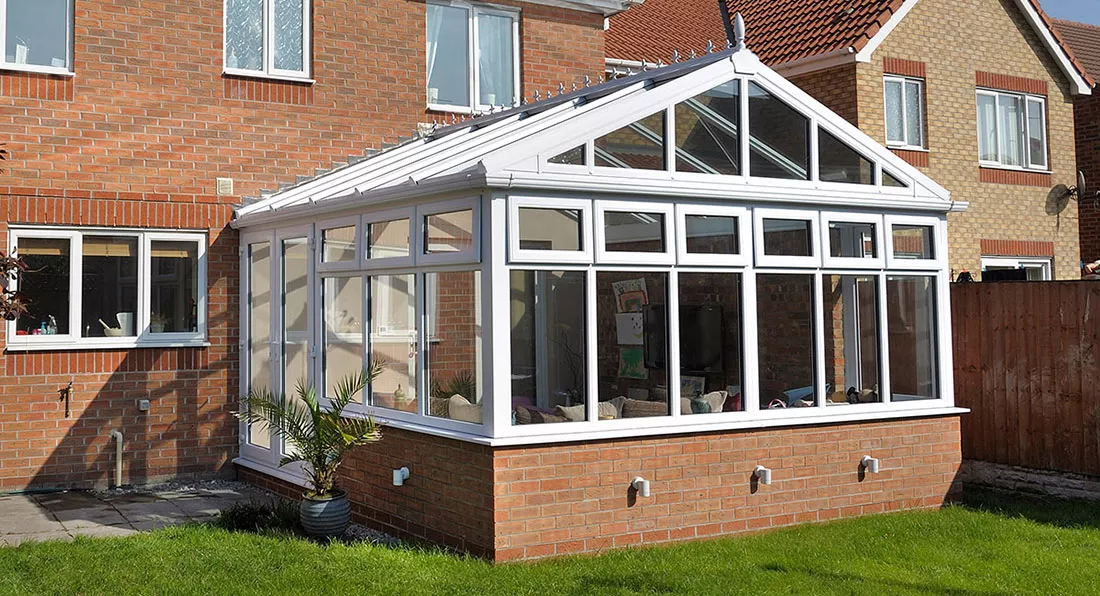
One of the most striking features of the Gable conservatory is the elevated roof, whilst your focus will inevitably also be drawn towards the beautiful sightlines offered. Householders seeking extra spaciousness at an already expansive home tend to take an instant liking to this design, partly because it also brings in lots of natural light.
P-Shape Conservatory
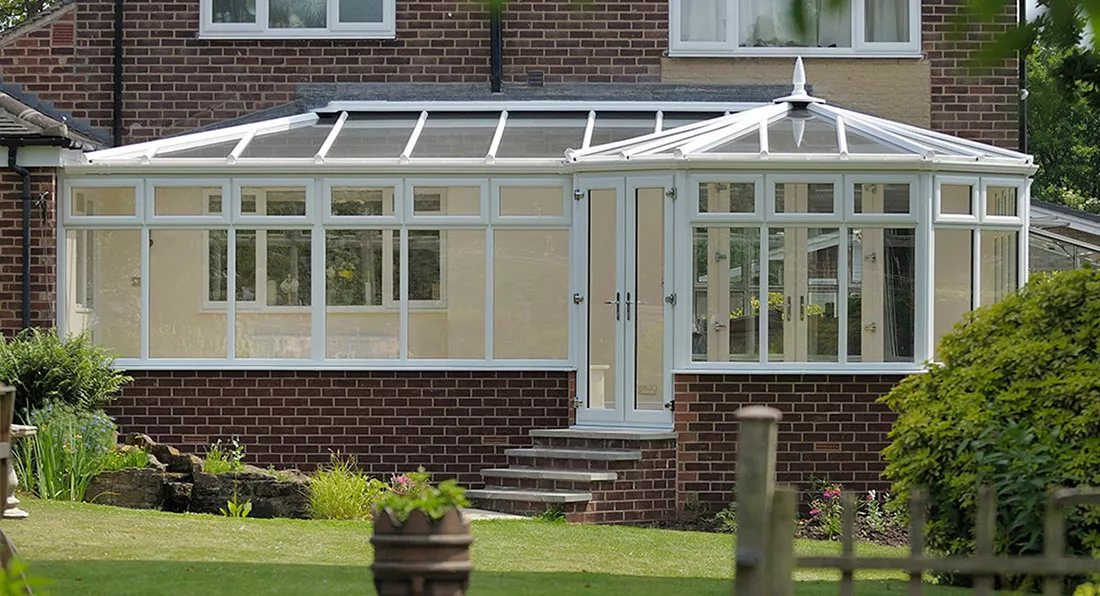
Available 3 or 5 sided; the P-Shape design has been influenced by both the Lean-To and Victorian designs. Because of how it is shaped it gives you the opportunity to use one part of the extension differently from the other. For example, you could install a dining table in the main area of the structure and have a seated area in the supplementary section.
T-Shape Conservatory
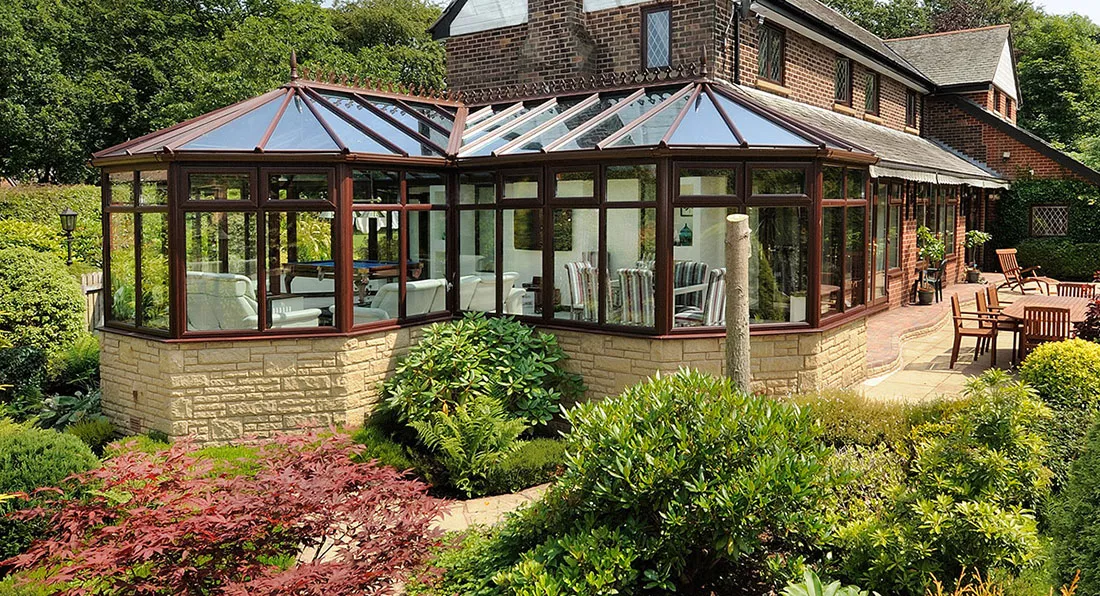
A T-Shape conservatory is shaped exactly how you would imagine it to be, with a very elongated internal width and forward projection. The forward projection really helps take it almost right into the heart of the garden. Like the P-Shaped conservatory, it gives you the chance to have two distinct living spaces and it works best on larger properties.
Veranda Conservatory
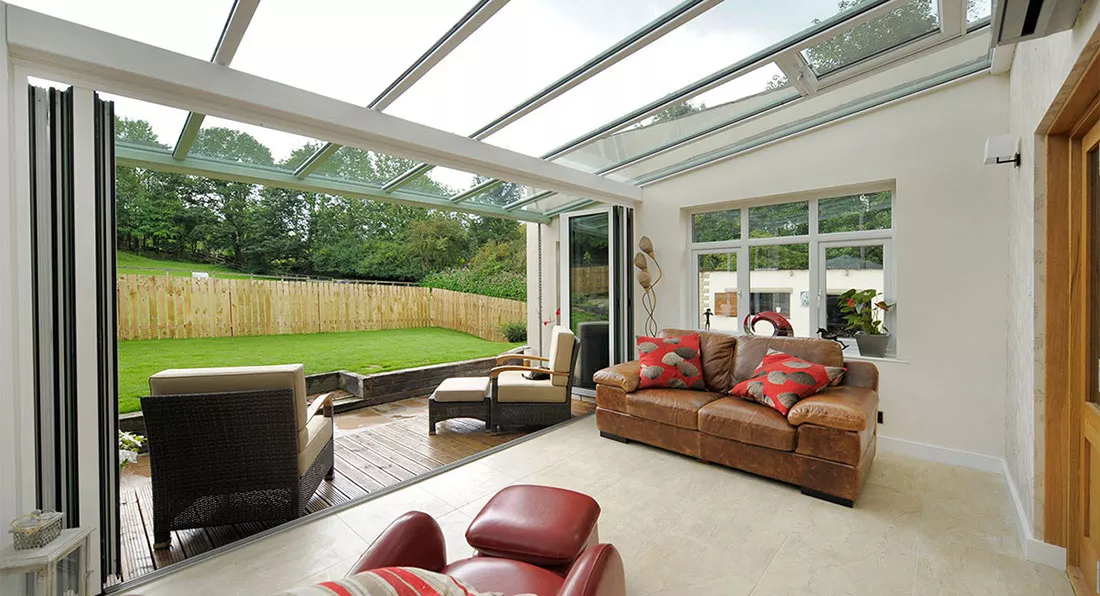
Switching between indoor and outdoor living environments from the cosy confines of a conservatory has been made possible with the development of the Veranda conservatory. A Veranda area is incorporated into the design and protected by an overhanging roof so that you can lounge in the open air without getting wet.
Loggia
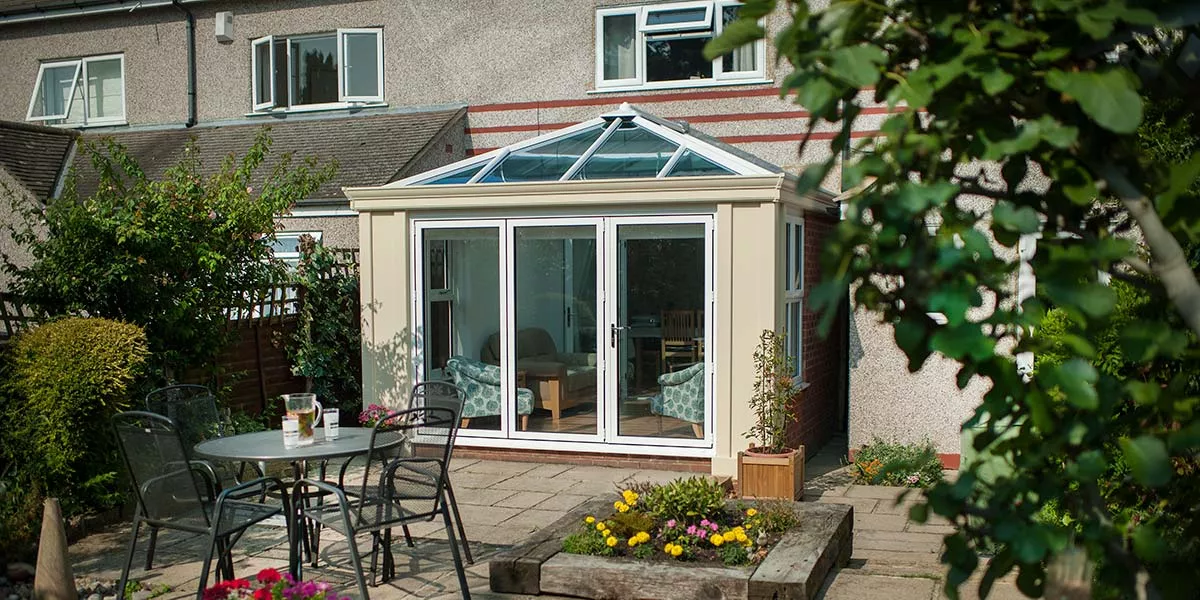
Since its launch a few years ago, the Loggia has fast become the most sought after conservatory design in the UK. Partly a conservatory, partly an orangery, its design is heavily influenced by the Italian Renaissance period, as the ornate solid corner columns and internally plastered walls demonstrate.
Orangery
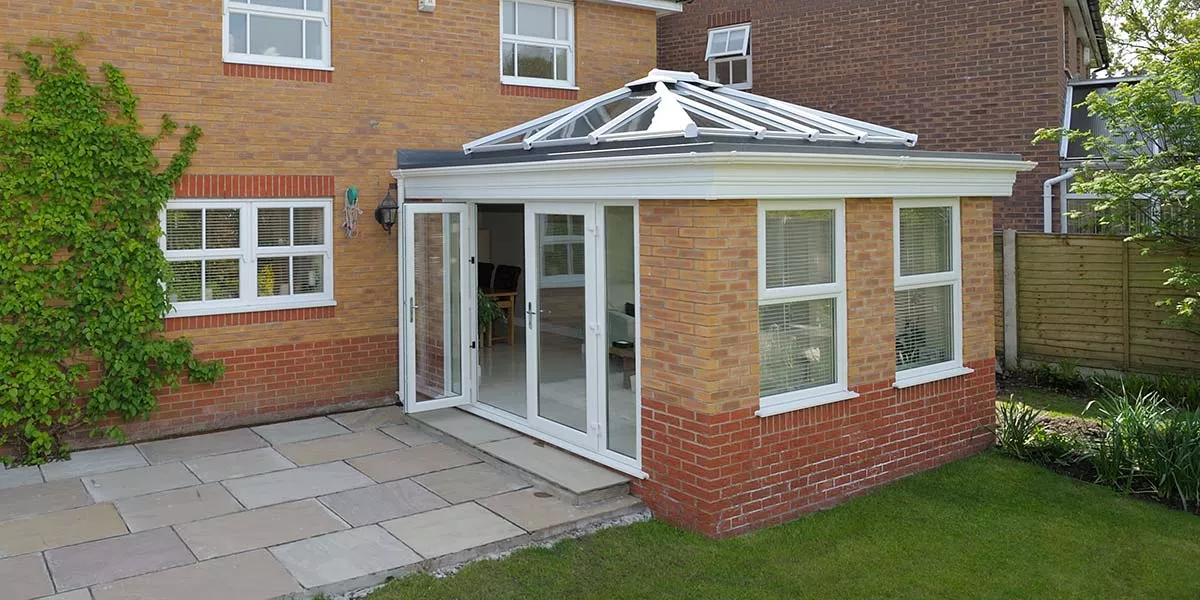
There are similarities between an orangery and conservatory, such as the glass roof and hefty windows, but an orangery utilises brickwork in its design. Because of that brickwork, many people consider an orangery to look like a more natural extension of the home than a UPVC or aluminium-built conservatory.
Don’t delay, summer’s on its way
If you’ve made a decision get a FREE quote now, otherwise call into one of our showrooms for further advice.
